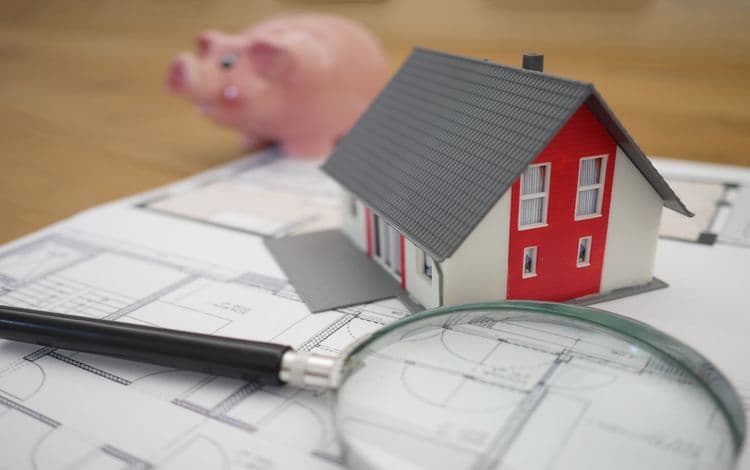For most homebuyers, the process of searching for a property, putting an offer in on a home, and then qualifying for a mortgage seems enough to do without worrying about anything else. Enter, the closing costs. What are closing costs? These are the expenses and fees you pay at the time of closing; such costs are incurred as a result of finalizing all relevant mortgage details so that you can close. While most have heard of closing costs, many may not be prepared for exactly how much closing costs can be. Usually, the bulk of these fees will be the buyer's responsibility, though in some cases, the sellers may have to pay a portion of some of the closing costs. In this article, we take a look at what comprises traditional closing costs associated with a home purchase or refinance.
Understanding closing costs
While there is no one set range as far as how many closing costs are going to be, you can expect that typically the costs will fall somewhere around 2 to 5 % of the total loan amount. Depending on the agreed-upon home price, this can be a significant amount of money. For example, let's say the sale price was 400k. This then means that in closing costs, you could be paying anywhere from 8000.00 and 20,000.00—certainly a substantial amount of money.
Because it can add up to quite a bit, many people opt to roll their closing costs directly into the home loan itself. Most lenders will allow this, though you always want to check and make sure with whichever lending institution you choose to work that this is the case. The most cost-efficient way, however, is to pay closing costs out of pocket; in this way, you are not paying interests on that amount over the entire life of the loan.
Closing costs are one area that you can evaluate when shopping around between different lenders. Fees will differ. Some lenders may also have room for negotiating when it comes to closing costs. There are even some organizations that have special programs for first-time buyers that allow for low or even no closing cost options.
Included in Closing Costs
Appraisal: Before finalizing the mortgage, the lender will need to get an accurate assessment of what exactly the home is worth in terms of the prevailing market conditions. In other words, they will lend you only what the home is valued at. If something should happen and they need to recoup their losses, they want to know that they can get that much money out of that specific property. This is why they hire a third-party professional appraiser to evaluate your property. The cost for this ranges anywhere from $300-500 dollars.
Home inspection: Nowadays almost all lenders are going to require that a home inspection be done before closing. Especially if the mortgage is part of a government-backed program, this is generally going to be the case. They want to ensure the house is structurally sound, that there are no major mechanical issues, and that it is habitable. This too is going to cost anywhere from $300 to 500 on average.
Application: When you fill out and submit your loan application there is a fee attached to process that application. They will need to run a credit check and there are also related administrative costs. Application fees vary depending on the type of lending institution you opt to work with.
Attorney: Many states (though not all/) do require that you enlist a real estate attorney to oversee the closing on your behalf. The attorney fee will be based upon the number of hours they have into your property closing.
Loan origination fee: This is among the costliest of the closing fees involved with a mortgage. It is basically what the lender is charging you for reviewing all of your documentation, putting your loan through underwriting, and bringing the mortgage to closing. So, this may include things such as document preparation, any notary fees involved, and the fees for the lender's attorney, to name a few. This can equate to .5% of the total loan amount, so you want to be aware of what you are paying for your loan origination.
Points: When you purchase discount points in essence what you are doing is buying a lower interest rate. This in turn will cut down on how much interest you pay over the life of the loan. Done strategically, paying for discount points could be a money saver in the long term. Generally speaking, to buy 1 point you would pay 1% of the total loan amount. For most homeowners, this is worth it if they do intend to stay in the property for a longer period.
Mortgage insurance fee: when you put down at least twenty percent of the purchase price you will not have to have mortgage insurance. If however, you cannot afford to put down this much, you will be required to have private mortgage insurance or PMI. There is an application fee to get PMI and the cost of this varies from one lender to the next.
FHA, VA, and USDA fees: There are various government-backed mortgage programs that you may qualify for depending on income, location, and other such factors. That said, if you do qualify for one of these programs there may be additional fees attached. For example, with a VA loan, there is a guarantee fee. This could be as much as over three percent of the loan amount in some cases. A USDA loan has a guarantee fee of 1% of the loan amount. And with an FHA loan, you have to pay mortgage insurance premiums upfront.
Homeowners insurance premium: Almost always, a lender will require you to have your homeowner's insurance policy in place before closing. So this initial premium will also be considered part of your overall closing costs.
If you need additional cash for your small business, First Union Lending can help. Call today!
